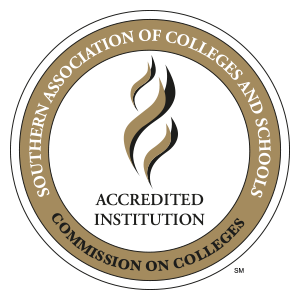Electronics Engineering Technology Bachelor
Electronics Engineering Technology Degree
Bachelor of Science in Electronics Engineering Technology

2.5 Year Bachelor's Degree
124 Total Credits

2 Courses Per Term
5 Week Terms

Transfer Credits
Up to 93 Credits
Request InfoApply Now

2.5 Year Bachelor's Degree
124 Total Credits

2 Courses Per Term
5 Week Terms

Transfer Credits
Up to 93 Credits
Electronics Engineering Technology Degree Overview
Level up your electronics skills with a Bachelor of Science in Electronics Engineering Technology (EET). This program dives into the dynamic world of electronics, a key technology powering countless industries. You'll gain the hands-on knowledge and skills needed to design, test, and build electronic devices for diverse fields. Learn from experienced instructors with real-world industry expertise, mastering essential areas like circuit analysis, digital electronics, and microprocessors.
This EET program equips students with knowledge in electrical theory through courses in electric circuits, digital systems, electronic systems, and more.
Plus, you can complete this bachelor’s degree in just 2.5 years, preparing you to make a quick impact in the field.
Knowledge and Skills
Graduates should grow in the following areas:
- Electronics Engineering:
Knowledge of electronic components, circuits, systems, and smart manufacturing technologies.
- Circuit Design and Analysis:
Skilled in designing and analyzing circuits using tools like multimeters, oscilloscopes, and function generators.
- Digital Electronics:
Knowledge of digital logic and microprocessors, with skills in PLC programming and troubleshooting.
Possible Career Paths
Graduates of this program pursue many different career paths. Some of the most common are:
Electronics Technician
Electronics technicians install, assemble, troubleshoot, and repair electrical devices and systems using their specialized knowledge. They may also create user-friendly instruction manuals and perform other related tasks as needed in their role.
Assembly Technician
Assemble electrical or electronic systems and support structures, and install components, units, subassemblies, wiring, or assembly casings. Use rivets, bolts, soldering, or micro-welding equipment to ensure proper installation and functionality.
Medical Equipment Repairers
Test or calibrate equipment using hand tools, power tools, or measuring devices, following manuals and troubleshooting techniques. Perform preventive maintenance, inspect and repair malfunctioning equipment, and keep detailed records of all maintenance activities.
Electronics Engineering Technology Curriculum
Bachelor of Science in Electronics Engineering Technology
Featured Courses & Overview
Robotics Programming & Machine Learning
EET333
Students will learn about the application of programming languages and machine learning algorithms to perform time series data analysis.
Semiconductor Processing
EET320
Students will learn about different fabrication steps such as silicon wafer growth, oxidation, diffusion, ion implantation, rapid thermal processing as well as photo-resist and optical photo-lithography.
Credit Hours
|
Course Categories
|
Description
|
52
|
Core Curriculum
|
Courses that provide an educational foundation, building essential skills across diverse subjects.
|
31
|
Arts & Sciences
|
Courses which delve into both creative expression and the scientific world, shaping well-rounded thinkers.
|
16
|
Track Courses
|
Specialized degree track courses are focused deep dives within your major, letting you become an expert in a specific niche related to your field.
|
10
|
Self Integration
|
These courses set you up for college success and beyond.
|
15
|
Electives
|
Enhance your academic journey and explore new interests with our elective courses, offering unique perspectives and enriching your educational experience.
|
124
|
Total Credit Hours
|
|
Certifications
ECPI University understands the power of certifications in today's dynamic technology field, and we believe enhancing your marketability is crucial.
To support your journey, ECPI offers discounted vouchers that significantly reduce the cost of certification exams for Fiber Optics Installer (FOI), Fiber Optics Technician (FOT), A+ Certification, Network+ Certification, and Security+ Certification.
Institutional Accreditation
 ECPI University is accredited by the Southern Association of Colleges and Schools Commission on Colleges (SACSCOC) to award associate, baccalaureate, and master’s degrees. ECPI University also offers credentials such as certificates and diplomas at approved degree levels.
ECPI University is accredited by the Southern Association of Colleges and Schools Commission on Colleges (SACSCOC) to award associate, baccalaureate, and master’s degrees. ECPI University also offers credentials such as certificates and diplomas at approved degree levels.
Questions about the accreditation of ECPI University may be directed in writing to the Southern Association of Colleges and Schools Commission on Colleges at 1866 Southern Lane, Decatur, GA 30033-4097, by calling (404) 679-4500, or by using information available on SACSCOC’s website (www.sacscoc.org).




 ECPI University is accredited by the Southern Association of Colleges and Schools Commission on Colleges (SACSCOC) to award associate, baccalaureate, and master’s degrees. ECPI University also offers credentials such as certificates and diplomas at approved degree levels.
ECPI University is accredited by the Southern Association of Colleges and Schools Commission on Colleges (SACSCOC) to award associate, baccalaureate, and master’s degrees. ECPI University also offers credentials such as certificates and diplomas at approved degree levels.
